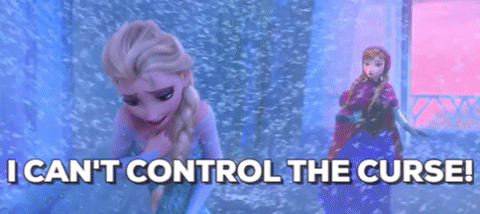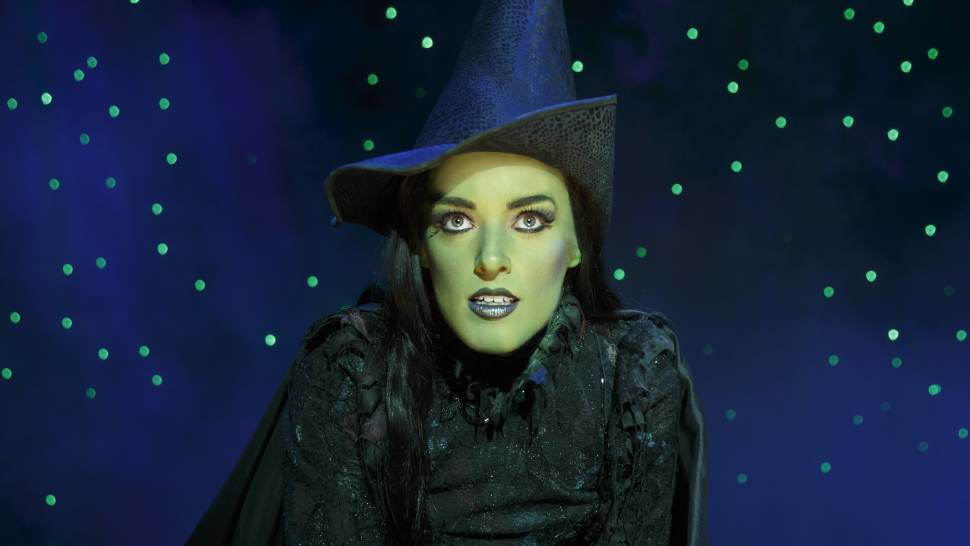Growing up, most of the girls in my elementary school wanted to be one of three things: a Cheetah Girl, a Spice Girl or a Disney Princess. I, on the other hand, found witches and sorcerers to be a more interesting daydream.
There’s something very empowering about watching a female character harness the forces of magic and use them to the best of her ability. Hearing stories about such characters helped me see the beauty of being the odd girl out.
Fast forward to 2020, where 27-year-old me is still fangirling over female witches. Currently, my two favorites are Elsa from Frozen and Elphaba, from Broadway’s Wicked. These two characters come from very different universes, but their stories are somewhat parallel.
Elsa hails from a Nordic country where magic is considered witchcraft and thus being born with magical abilities makes you a monster. In Elphaba’s native Land of Oz, sorcery is a common trait among the citizenry and can actually be studied in school.
Yet these characters both find themselves in similar predicaments: outcasts of society, constantly living in fear of their own powers, and grappling with being the product of two different worlds.
Having Magical Powers Makes You An Outcast

In Frozen, Elsa’s powers are unintentionally outed by her sister during her own coronation party. From that point on, for much of the movie, Elsa is seen as an outcast due to her abrupt self-exile.
Fearing for her loved ones, she flees to the farthest mountain and conjures an ice palace, literally isolating herself. Her fear of her powers is so great that she feels she needs to avoid everyone and everything in order to keep them safe.

Elphaba, on the other hand, is considered an outcast because of her bright green skin and her peculiar affinity for advanced sorcery. It’s also how Elphaba utilizes her talents that causes people to fear and hate her.
She uses her powers to expose the truth about the Wizard and liberate the talking Animals who were considered inferior under his rule. In response, the Wizard pushes anti-Elphaba propaganda, effectively tarnishing her name and corrupting her image.
Thus while Elsa was a self-inflicted outcast, Elphaba had no choice in the matter, but she was an outcast just the same.
We All Live In Fear
As illustrated in all Frozen media, Elsa is quite terrified of her powers. The reason why she self-exiles in the first place is that she thought she was endangering her loved ones. At one point Elsa has a full-blown panic attack because she realizes that even though she ran away, her powers can still affect Arendelle.
This in turn creates a seemingly endless downward spiral for Elsa who nearly succumbs to her fear by the end of the movie. It’s important to note that Elsa isn’t necessarily afraid of what people will do to her once they find out about her powers. She’s more so afraid of what she can do to them if things get too out of control.

Elphaba suffers from a similar type of fear, but it’s mainly due to the fact that everyone in her life has actively avoided her because of her features. The townsfolk are basically taught to feel threatened by her because of their learned prejudice and the Wizard’s indoctrination. Unlike Elsa, however, Elphaba learns to embrace this image and use it to her advantage.
Best of Both Worlds
According to the events of Frozen II, both Elsa and Anna are the products of two different cultures. Their father, King Agnarr, rules over Arendelle, a kingdom where magic and sorcery are considered fairytales. Their mother, Queen Iduna, hails from the Northuldra tribe, who have a deep and spiritual relationship with the forces of nature.

Agnarr represents the royal and non-magical side of the sisters’ ancestry while Iduna embodies the mystical beliefs of the Northuldra. Thus, in a way, the sisters are a bridge between the magical and the nonmagical.
Like Elsa and Anna, Elphaba is also considered a product of two worlds, but her backstory isn’t as straightforward.
Elphaba has both royal and tainted blood. She was conceived when her mother, Melena, was drugged and seduced by Oscar Diggs, who becomes the future Wizard of Oz. Melena is a member of the Thropps, the royal family of Munchkinland, thus making Elphaba a royal herself. Her father however has no real magical abilities and is really just a power-hungry con artist. This reinforces the idea that her conception was unnatural and resulted in her having green skin and indescribable powers.

Different but Parallel
On the surface, Elsa and Elphaba seem like two entirely different characters. And yes, while they do hail from very different universes, their stories and personalities run parallel. They may be the odd girls out but they own it and, in turn, become powerful and even inspirational.


1 Comment
Amazing.